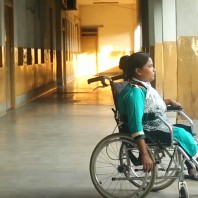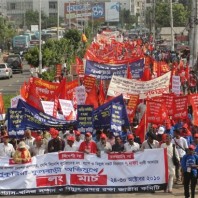Access Bangladesh Foundation which advocates and promotes equality for disabled, underprivileged and extremely poor people in all spheres of life, through education, health care, appropriate training, employment, communication, and barrier free environment released a video on the World Bank funded Skills and Training Enhancement Project (STEP) in Bangladesh. The video, a summary of the in-depth …
Commonly, it’s thought that developing countries bear a large portion of the blame for climate change. This study shows that the biggest climate offenders are in fact the richest countries in the world, while low and middle income countries suffer from the effects.
The Phulbari Coal Project threatens numerous dangers and potential damages, ranging from the degradation of a major agricultural region in Bangladesh to pollution of the world’s largest wetlands. The project’s Summary Environmental Impact Assessment, and its full Environmental and Social Impact Assessment are replete with vague assurances, issuing many promises of future mitigation measures.
Over 100 civil society groups from 31 countries are calling on financial backers to withdraw their support from the the controversial Phulbari Coal Project in Bangladesh. The project will displace over 200,000 people, impoverish farming households and cause immense environmental impacts in one of the most fertile regions of Bangladesh. Despite these factors, according to information available on its website, the Asian Development Bank (ADB) remains interested in financing the project after having distanced itself from it earlier this year.
The Director of the Asian Development Bank’s Private Sector Operations Department, Robert Bestani, notified the Bank’s Board of Directors last week that it will take the Phulbari Coal Project in Bangladesh out of the Bank’s funding pipeline.
Civil society groups from South Asia are planning to boycott the Asian Development Bank’s consultation meeting on its safeguards policy update, to be held in New Delhi, India tomorrow. The groups, from India, Nepal, Sri Lanka and Bangladesh state that the ADB’s consultation draft, released in October 2007, greatly dilutes the Bank’s earlier policies on Environment (2002), Involuntary Resettlement (1995) and Indigenous Peoples (1998), and is opposed to indigenous peoples’ rights and subverts environmental considerations.
Citing violations of five of the Asian Development Bank’s (ADB) own policies, non-governmental organizations from around the world have petitioned the ADB to discontinue its pre-appraisal of the Phulbari Coal Project and remove it from the funding pipeline.


